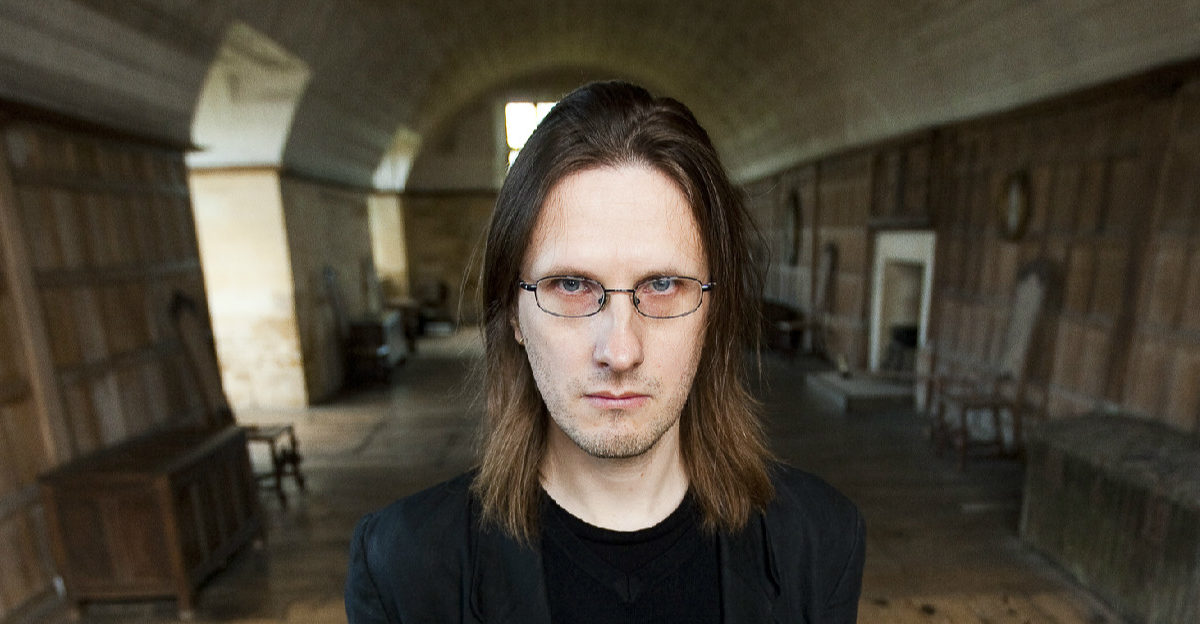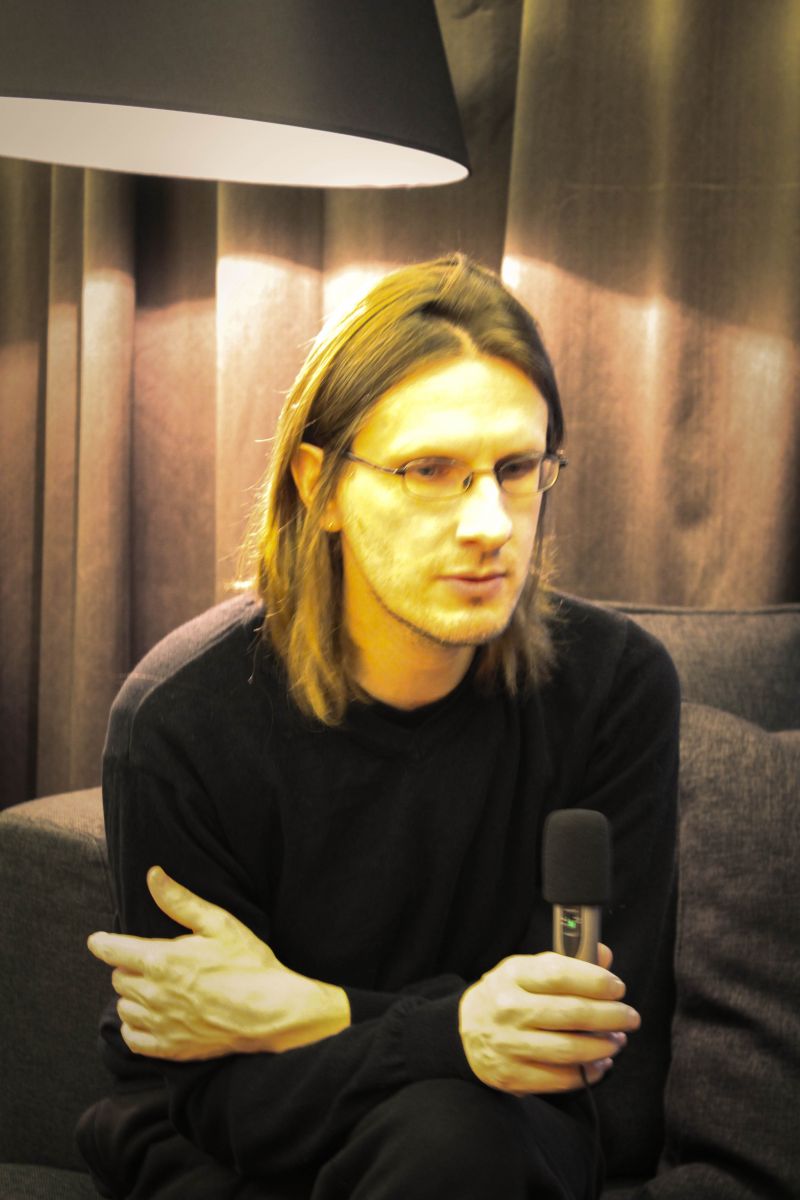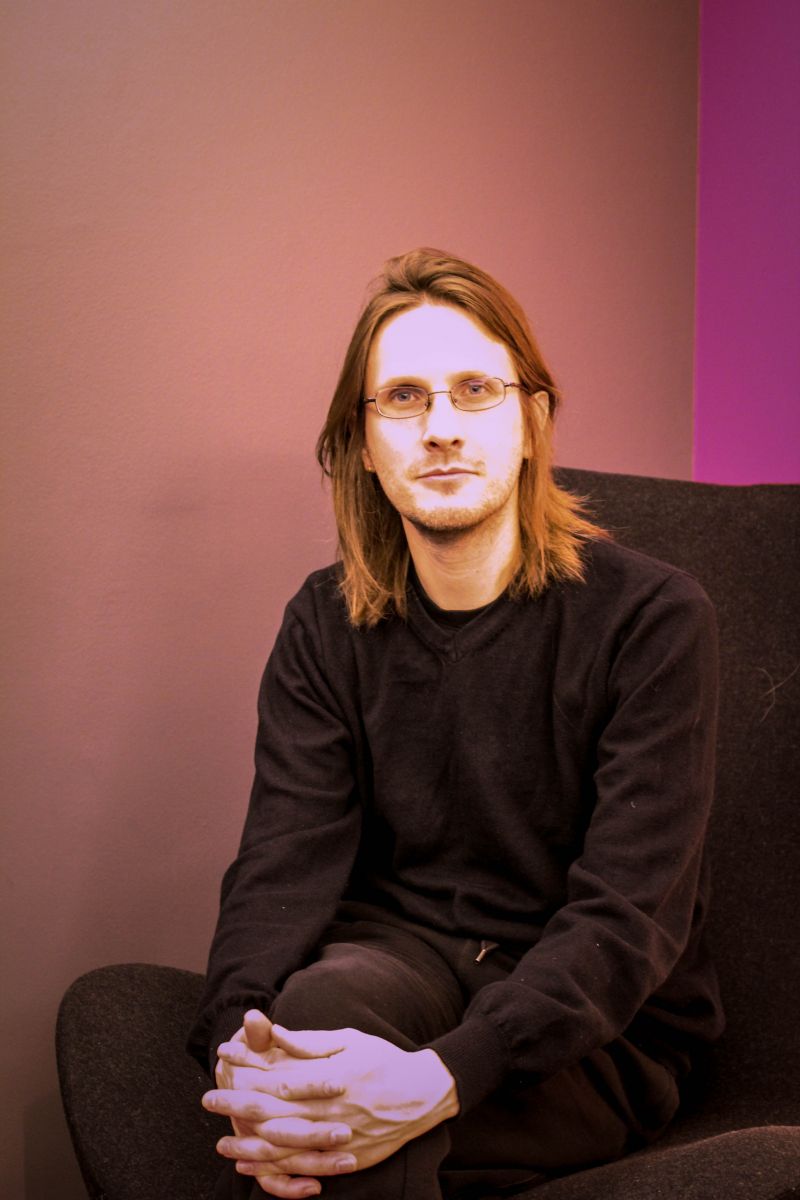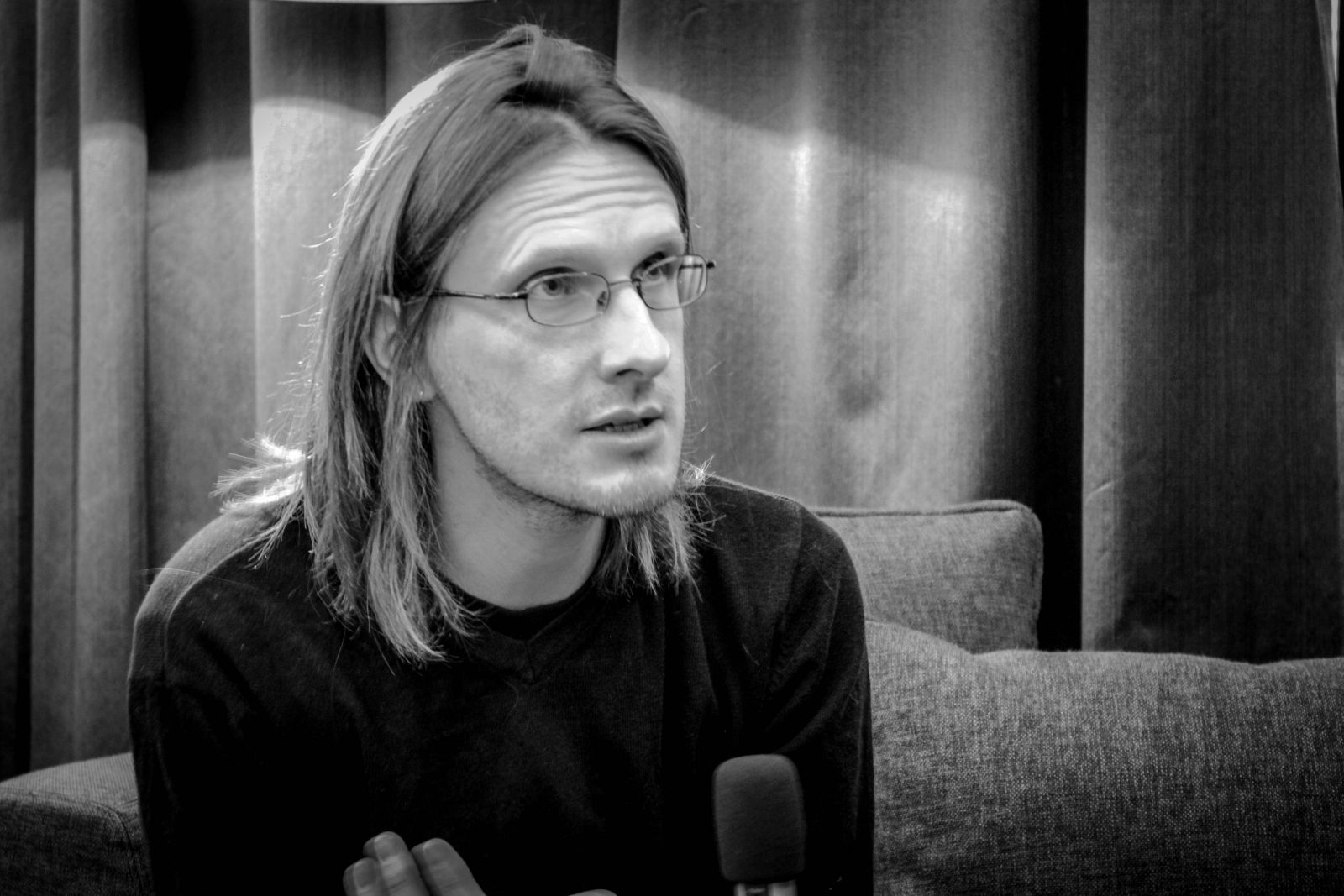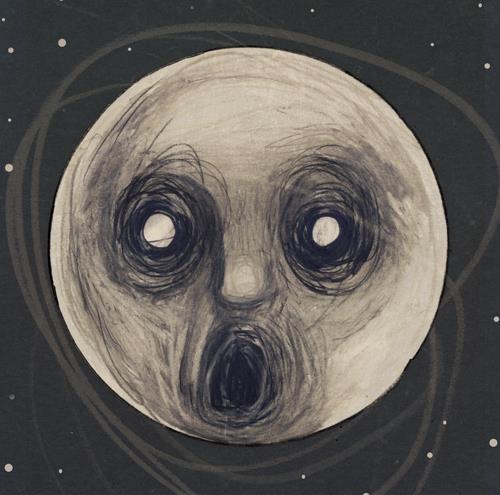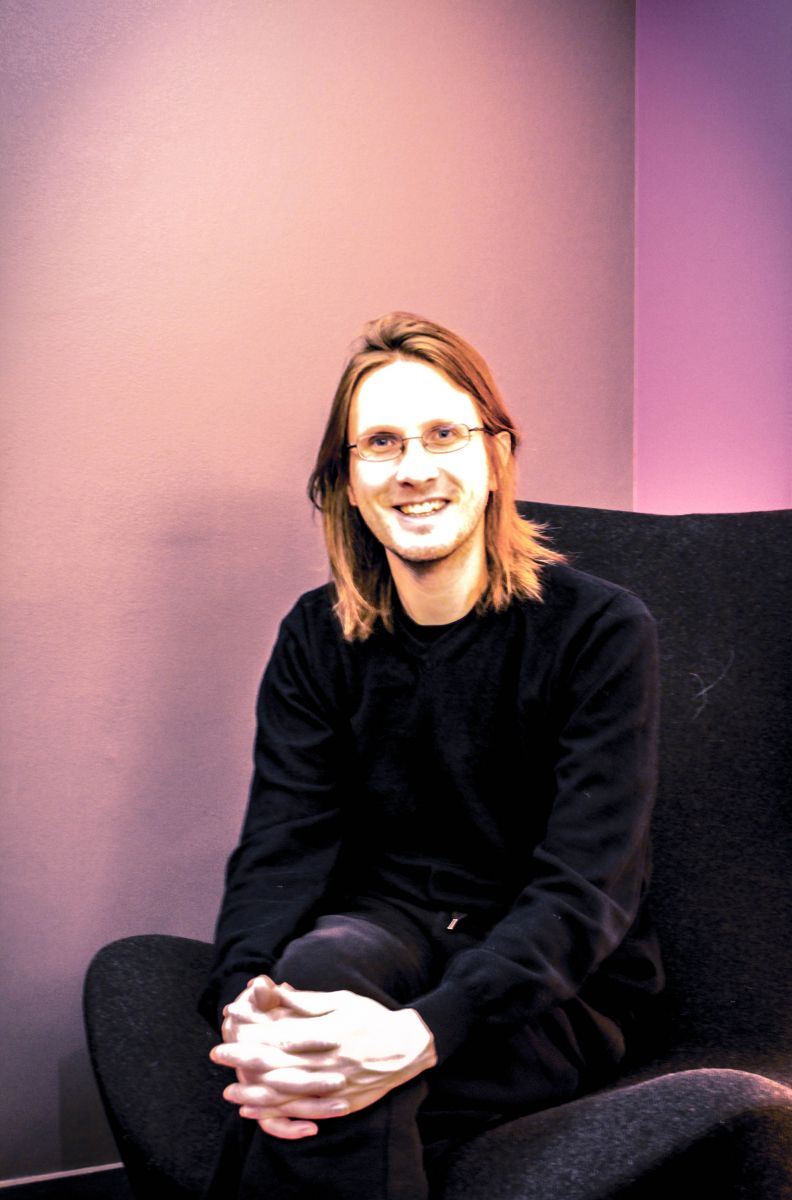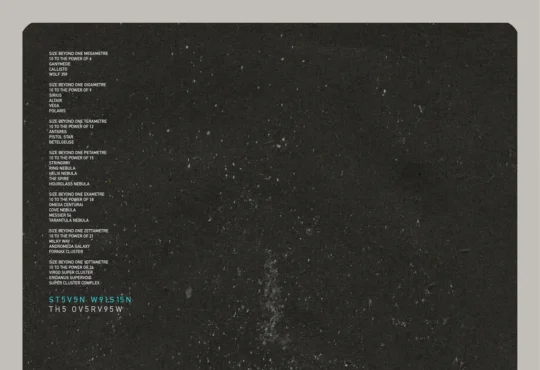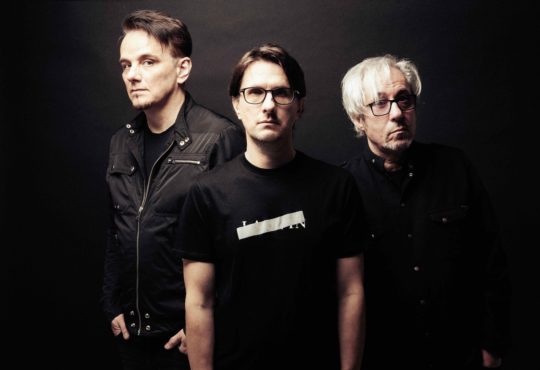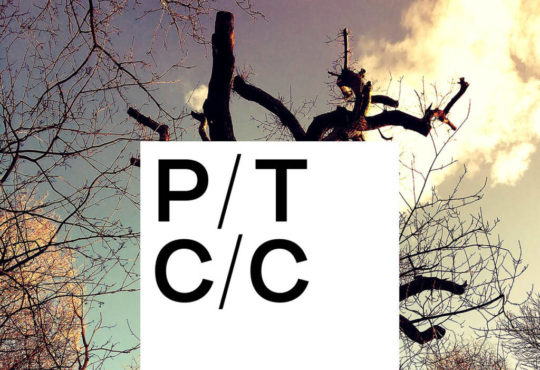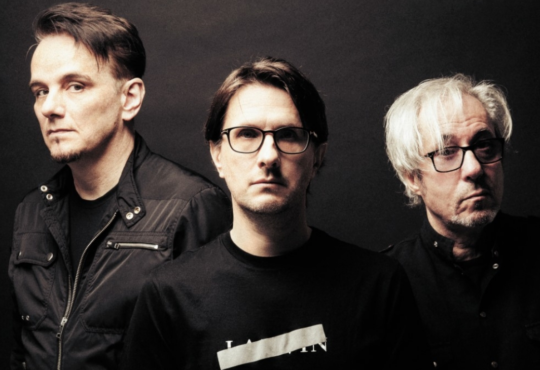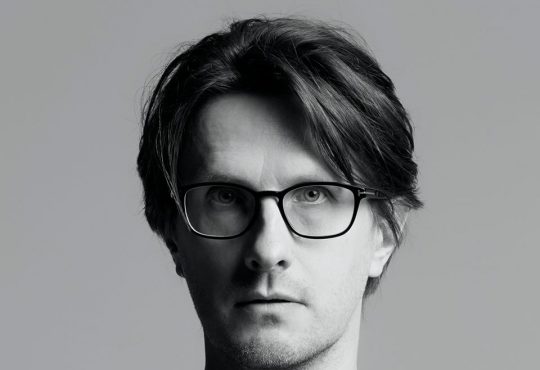Only two weeks left before the release of Steven Wilson’s brand new record “The Raven That Refused To Sing (And Other Stories)”. Once again, his music leads us to reflection. Let’s have some details.
Hi Steven!
Steven Wilson : Hello!
I hope you are enjoying staying in Paris.
S : I love the city but I’m not seeing any of it today. Right now, cities are just hotel rooms, but yeah, thank you.
So, let’s go straight to the point. You are about to release your album “The Raven That Refused To Sing (And Other Stories)”. If we ask you to describe each track with a simple quick sentence, to explain how it sounds, what it deals with, what would you say?
S : Ok. It’s hard for me to do anything as simple sentences… Basically, the album takes the form of a series of six short stories, but six stories as represented through these songs. Each song is a story of the supernatural, a ghost story but in a very classical sense, not like a modern horrifying story, but more like a brooding gothic classical supernatural short story. So we start with “Luminol”, the first song, which is about a street musician. He plays every single day in the same place in the same town, and he’s always ignored by all the people passing by. One day he drops dead in the street, but the next day, he’s back again, doing exactly what he always did, and he continues to be ignored. So it’s a story, basically, about somebody who was a ghost in life and was a ghost in death. The song “Drive Home”, the second song, is about a guy who is driving along with his girlfriend and one day, he looks around, his girlfriend has disappeared, he doesn’t know what happened to her… Then years and years later, the ghost of his girlfriend visits him, and explains to him what actually happened. It says there was a horrible crash and she died, and this was his fault. Of course, he had a memory he blanked out of his memory. So it’s a kind of song about regret and loss. The third song, “The Holy Drinker”, is about a guy who challenges the devil to a drinking competition. He loses and then he’s getting dragged to hell. The next song, “The Pin Drop”, is about a wife and a husband. This is the husband who’s killed the wife. “The Pin Drop” is the song from the point of view of the wife as she floats down the river where he’s dumped her body. The fifth song, “The Watchmaker”, is about an elderly couple who’s been together for fifty years despite the fact they don’t really love each other; and it’s the idea that of beeing in a relashionship because it’s convenient, and because it’s comfortable, not because of any reasons of love or passion. And the final song, “The Raven That Refused To Sing”, is about an old man who is looking back to his childhood, and his relationship with his sister, who died when she was a child, and he’s never really recovered from that lost. He’s never had any other relationship with any other human being. And his sister begins to visit him in the form of a raven, and he feels that if he gets the raven to sing, like his sister sung to him when he was a child – to calm him – then that would be proved that she is the incarnation of the sister. So they are all kind of classical stories of ghosts or supernatural.
About the tracks “Luminol”, “The Holy Drinker” and “The Watchmaker”, we read that many journalists wrote that they are epic song – maybe because they are quite long songs, more than ten minutes each. We don’t really agree with this word, as it can mean many things… What do you think about that?
S : I think people use the word “epic” just to suggest, when something is long and perhaps has the structure that is removed from the idea of a conventionnal three minute pop song. I think that what would be more appropriate to say is that these three songs are like musical journeys. They have a number of sections, if you even take away the lyrical content, they almost tell a story, just through the music. And I like that. But I’ve always done that, I’ve aways loved the idea of having a sense of journey through a piece of music – and that’s why a lot of my pieces are quite long. Because if you want to tell a story through music, very often you can’t to it in a very conventionnal three minute pop song. But you can do it with involved and more complex structures. So I think when people talk about epic, that is basically that this is a song that has a fairly unconventionnal structure and perhaps still some kind of musical story.
Still about these long tracks, with structures that are more convoluted and which include various kind of musical effect. Could you quickly explain the process of writing such songs? How you plan the structures, how you experiment new sounds…
S : It’s a hard thing to explain… I understand what you are asking… When I sit down to write music, very often, one idea will suggest the next idea. What I mean by that is that is you have a part, a chord sequence or a rythmic part or a riff, something like that, it usually will suggest what the next thing will be.
So it’s a step by step process.
S : Yes. For example if you write a novel, the first sentence suggests the next sentence. So I think there is an element of that. But there is also an element, a lot of the time, of trying to fix a puzzle together. I very often end up with a lot of sections, and the structure isn’t right. And then i end up – one of the great things about working on computers now is you can do this easily – I end up like, perhaps transposing two sections, or trying it later around, or maybe trying to copy that riff again here… And a lot of my time is consumed, in the compositional process with trying to find the right way to tell the story. And the best analogy I an give is, if you have a movie, and you shot a bunch of scenes, but you’ve not necessarily decided what order the scenes will be played… There is probably only one order of scenes that really works. Or at least there is an order that is the best order. And when you start editing your movie, you have to find the right sequence of scenes. And I think a similar process is on particularly with these long pieces. Try to find the most satisfactory way to tell your story.
So eventually, the actual structure comes at the end.
S : It eventually kind of solidify into a structure that feels like it has a natural movement from beginning to end.
We were previously talking about experimenting new sounds. Have you ever chosen to drop a special effect or a particular sound, because would be too hard to perform it live?
S : No. I never thought that the live show should dictate or influence the record. For me the record is something that’s gonna be around for – hopefully – 50, 100, 200 years, where the live show is fun, but is more kind of ephemeral thing. And also, a thing with the live show is that if a song that you did in the studio doesn’t work live, you don’t have to do it. I mean, there are songs that I’ve recorded with all my other projects, that we’ve never played live, because it would be impossible to do it live. I mean, think about a song like “A Day In The Life” by The Beatles. They could never play that live. But it’s one of the most extraordinary pieces of music from the 60s. And I personnally think you should never allow your ambition to be tempered by the needs to play live. If you feel like overdubbing a hundred guitars because it sounds good, then do it! And I think that I’ve always felt that the studio work is the most important aspect of what I do.
Back to the album, what is obvious is that there is a lot of flute on it. That is maybe the most surprising thing for someone who discovers your work : why did you chose to use this instrument? What does it represent for you?
S : I’ve always loved it. One of my favourite kind of music is jazz. It’s pretty much the music I listen to most these days – as I got older I listen to jazz more and more. I do understand that for some fans, it’s been hard to digest the more jazzy sensibility in the music. Which I suppose is most represented by the flute and the saxophone, which are traditionnaly thought as the jazz or classical instruments. The simple answer to your question is “because I like it”, but that would be the answer to everything you would ask me about the album – what did you did this or that? “Because I like it, it sounds good to me”. There is no great intellectual masterplan about trying to introduce my fans something I like. I just do it because I personnaly like it. I understand that some fans don’t like jazz, have difficulties dealing with that aspect of things, but you know, I always feel like I have to be quite selfish about he way I make music. Otherwise, I’m not being an artist, if I start thinking to much about what people expect, then I’d start becoming an entertainer, and I don’t want to be an entertainer. So…. because I love it. That’s a simple answer. Because I love the flute and always have.
Still about the flute : especially on the track “Luminol”, the way it is used reminds me some Jethro Tull tracks. Is it a big influence for you?
S : Of course, yeah, I love Jethro Tull.
And is the influence conscious on this track?
S : Yes and no. Hem… In that case no. Listen, I think that with a band like Jethro Tull, as for a band like King Crimson or Pink Floyd or these kind of bands, they are a part of my musical DNA. I grew up listening to those bands. I couldn’t bury these influences if I wanted to. So I think they come through, whether I mean them to or not. So is it conscious or subconscious? I’m aware of it, but it’s not like I’m sitting down and saying “OK, let’s steal from Jethro Tull today”. But I think my music – by default – will always have references to the music I love. And also that’s music I’m still working on. I’ve just mixed three albums from Jethro Tull, so I think my head is kind of full of that music anyway, and so it naturally has a influence on what I do.
When “Grace For Downing” came out a year and a half ago, you told that it was eventually a coherent album, and that you had needed twenty years experimenting in bands and solo projects to gather all the facets of your musician personnality into that album. Do you feel the same way about “The Raven That Refused To Sing (And Other Stories)” ?
S : No. I think “The Raven” is a more cohesive record in a particular style. The thing about “Grace For Drowning” was that I felt it was an album that, as you already mentionned, brought together a lot of different strands of my musical personnality : my interest in noise music, my interest in jazz music, progressive music, electronic music, piano ballads… it was all there. I think this album is perhaps taking – this is not negative at all – a more specific aspect of my musical personnality., and making a whole record of it. There’s no electronics on this record. It’s more of a traditionnal oldschool progressive rock record in a way. And it looks back to the 70’s, hopefully not in a retro way, because I did it so it sounds like a really modern record. But I think it doesn’t have perhaps the range… it’s not as messy as “Grace For Drowning”. And I like the fact that “Grace For Drowning” is messy, I don’t mean it in a negative way. But “Grace For Drowning” is all over the place, there’s like a beautiful piano ballad in it, a kind of electronic piece, a long progressive rock track… I like that fact, I like albums like that. But I think “The Raven” – and I think it’s one of the reason people find “The Raven” a little bit easier to accept in a way – it has more a sense of consistency and cohesion, and perhaps that’s because it focuses more on a particular aspect.
It seems that on this album you chose to avoid the rocking flights of guitars that you used on older tracks. Is it done on purpose or is it just to fit the jazzy side of this album?
S : Over the last ten years, I have explored and experimented a lot with big guitars and particularly with the influence of metal music. Not too much on my solo project, but on the last few Porcupine Tree albums. It was kind of very important, guiding my evolution as a musician. The problem with really heavy guitars is if you use them, they dominate whatever you’re doing. There’s no space left really, for anything else. And because I wanted to experiment more various instrumentation, like the flute, like the saxophone, and also things like Mellotron, Hammond organ, Fender Rhodes, piano, acoustic guitars, harmony vocals… the guitar, by necessity, has to take a more subtle role in that music. Heavy guitars, or big guitars tend to become the focus of whatever you do. They take up so much space in the frequency range. So I think that because I wanted to experiment more with what I think are warmer textures, more golden or organic textures, the guitar has also had to become warmer and cleaner, and more organic. And there is an influence again from the jazz guitar players, playing with a cleaner tone, a more cristalline quality to the guitar. So maybe that is an explanation to your questionning.
So that was more to give space to the other instruments.
S : I think so. I mean the guitar is still very present, there is still a lot of guitar, but the tones are more sympathetic to the whole orchestration.
Back to the lyrics, why did you choose to write about supernatural tales?
S : At the time I was writing the music for the first piece of music of the album, I didn’t have any lyrics, I didn’t have any subjects I wanted to write about. The first pieces I wrote were “Luminol” and “The Watchmaker”, which, as we already discussed, kind of felt like they were telling stories. Already. Just musically telling a story. So I already had back in my mind “this feels like a short story thing”. At the same time, I was reading a lot of gothic fiction, ghost story, supernatural fiction. Authors like Edgar Allan Poe. Also early 20th century British writers, who were specialized in that form of supernatural short story. And I love them. I love these stories. So the two ideas kind of came together, and the first thing I did actually was write my own short stories. I wrote two or three short stories, in the tradition of the books I had been reading. And in fact, the short stories that I wrote are going to be part of the special edition of the album. So it seemed to be a very obvious thing to connect the two things together, the music suggested to me the idea of short stories. And you know, I’ve always liked the dark gothic things anyway, and the music has a kind of melancholic surreal feeling to it. So without having anything else that I wanted to work on, I started writing the lyrics based on short stories, and from a visual point of view, it’s been a really good thing to do, because the whole artwork now ties with the idea of ghost stories and supernatural fairytales, and this kind of gothic imagery. And it works beautifully with the artwork, we have a beautiful special edition which does look like a book of short stories. A classical book of short stories.
So you are talking about the artwork, and that leads to my next question : what does this artwork epitomize for you? Where does the idea come from?
S : It came directly from the idea of short stories. And the idea was originally to have it look like the kind of book that you would find right at the back of an antique second-hand book store. I wanted it to feel like it was almost outside of time. It’s one thing to say that you want something to look old and nostalgic, a bit retro. But in fact what I really want is I want it to look like it is outside of any time, that it has a timeless quality into it. And I think classic children fiction or classic supernatural fiction has that quality. Because at the end of the day, ghost stories or supernatural stories, they’re all basically about this idea of mortality, and about the obsession that we all have with our own death. From almost the moment when we’re aware that one day we will die, it becomes a kind of burden that we carry around with us. And I think that is the source for a lot of that kind of writing and fiction, not only in the litterature world, but also in the music world. Look at how much heavy metal is obsessed with death and mortality. And that’s no coincidence, I think that young people, as soon as they become aware of that idea of mortality, it becomes an obsession. So I think a lot of classic ghost and supernatural fictions has to do with the idea of regret, of loss and mortality. And I think it exists outside of time and outside of fashion. So that’s kind of what I’m aiming for with this project.
So, let’s now talk about your other projects. First of all, you have many parallel projects. We were wondering how you manage all of them so they don’t interfere or maybe rub off on each other, because that must be really difficult.
S : Well, I don’t. I don’t manage. It’s hard, and actually, for the last two or three years, I had to make some decisions in order to focus on what I really want to do now, the solo project. For example Blackfield, it’s something I’m not so involved in now. Aviv (Blackfield singer, -ed.) has just made a new record with Blackfield, and I’m still involved in production, in a bit of playing and singing, but I’m not writing for that anymore. Porcupine Tree has done nothing for three years, and that’s because of me, basically. And I don’t feel that this is what I want to do at the moment. So I think the answer to your question is that I haven’t managed, I’ve actually put some things aside in order to concentrate on what I wanted to do right now. That’s always difficult, you know, because I love working on lots of things, but I am human and I don’t have time to do everything. And so for the last few years – for the first time in my life I think – I’ve had to make decisions about “no, I can’t do that”… which is difficult for me.
What are for you the differences between writing an album with a band and as a solo artist?
S : It’s quite simple, really. When I write for a band, I know that I have to make the music or the writing something that will appeal to all of the other members. Now, specifically with Porcupine Tree, there are fou people in that band, and we all have our own musical tastes, we have a very small area where we all agree. It’s quite a small area. I have to aim right here. Now, that is a good and a bad thing. It’s a good thing because that’s what gives the band such a strong identity. Because that’s how the band sounds, everyone knows that’s how Porcupine Tree sounds. But this is also a limiting thing, because I write a lot of stuff, which would not fit into Porcupine Tree. And that’s why I felt like starting the solo project, which is so important to me, because it’s finally an opportunity for me to not have to consider things like “we couldn’t do that in this band”. I couldn’t do anything, anything I want in this band. So that’s the main difference. I think one of the other reasons why I wanted to stop with Porcupine Tree for at least a while was I didn’t really know what to do with the band, at the end of the last albums. I didn’t want to make another album the same as the previous ones, but I didn’t feel like I had any ideas where to take the band. For example, there’s one member of Porcupine Tree that absolutely hates jazz. HATES it. So, here I am listening to a lot of jazz, and very interested in exploring jazz. I could never have done that with Porcupine Tree.
You just talked about Porcupine Tree. We won’t ask you what are the plans for the future, but…
S : There’s nothing to say anyway.
We know, but is it something that became less important for you over the past years?
S : I think I’d be lying if I said it wasn’t… yeah. I feel like with Porcupine Tree, something was achieved. And now, I’m not quite sure what there is left to achieve with that band. And I’m not saying that we won’t still make another record, I’m sure we will, but… For a long time, Porcupine Tree was definitely my primary focus. And all my best songs, my best material, and all my best work was kind of going into that. I don’t feel it anymore. I felt like the last couple of solo records particularly are more important to me that anything I’ve done. No, that’s not true. I think there’s a couple of Porcupine Tree albums that are very important to me, but they’d be for example “In Absentia” a few years ago. I think we really peaked then… Yeah it’s a difficult one, that one. I think, you know, without wishing to be sort of glib, things have changed. Things change in your life, and that’s normal… I never wanted to be doing the same thing in my whole life. If I said to you, for example, you’re gonna be doing the same job, with the same people, in the same office all of your life. You’d be horrified, right? (laugh) But it’s funny how in the music industry, if you have a successful brand – for a band – people almost expect you to do the same job with the same people. And I don’t think that it necessary has to be the case. I think music is a wonderful gift, and it gives you the opportunity to work with different people, to travel in different countries, to make different kinds of music. It keeps things exciting for yourself, so I guess that’s what I’m doing. And if people are upset by that, if some of theme are… (he feigns to wince in disgust) I can’t help it.
We are about to end with our traditionnal question. We are “RockYourLife!”, so as a conclusion, what rocks your life?
S : What rocks my life? I realize I’m in a very unique position, because I’m a musician that doesn’t make commercial music. I don’t compromise. I basically do what I want. And I make a career from it. Not a great career, I’m not rich, I’m not famous or anything. But I love what I do, and I think that at the end of the day, that makes me happy. So if you wanna say that’s what rocks my life… The idea that I’m free to do what I want. The other thing that rocks my life is my little dog. My little chihuahua, Melly. I’ll show you a picture of her (he grabs his bag and shows us the wallpaper on his phone). She rocks my life. That’s not very rock’n’roll isn’it? Chihuahua is not a really rock n’roll dog…
Interview by Régis P.
Website : stevenwilsonhq.com



